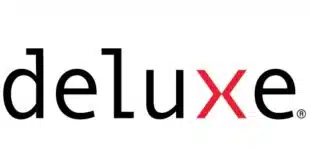By Jim Daly
A new mobile app from an Atlanta startup that uses remote-capture software provider Mitek Systems Inc.’s imaging technology aims to have workers automatically time the payment of routine bills with their pay days, thereby helping consumers escape the pitfalls of living paycheck to paycheck.
“That’s exactly what we’re trying to help people avoid,” says Brian Cosgray, co-founder and chief executive of DoubleNet Pay Inc. “It’s a very simple thing for technology to solve.”
Under the hood, however, the operations and technology needed to make such a bill-pay system work is anything but simple. DoubleNet Pay distributes its app through payroll-services providers and employers, with Roseland, N.J.-based Automatic Data Processing Inc., one of the biggest in the industry, being its first publicly announced partner.
Employers using ADP’s services can access DoubleNet Pay’s system through the ADP Marketplace, an online market that offers third-party applications that draw on data available to them through ADP. After initial setup, employers can offer DoubleNet Pay as a mobile-phone based benefit through Apple’s App Store or Google Inc.’s Google Play market for Android devices.
An enrolled employee can set up one-time or recurring bill payments through DoubleNet Pay by snapping a picture of a bill. The software captures the account number and other key data, which can be used to capture future bills from the same biller for automatic payment. “We will track that bill, and in future, we schedule that around the corresponding paycheck cycle,” says Cosgray. “Then we automatically segment the funds for that bill out and [it] gets paid automatically.”
Employees can go to DoubleNet’s site at any time to see which bills they have pending. They also have the option to remove a bill from automatic payment. The system also can be used to fund savings plans through an arrangement DoubleNet Pay has with Cedar Falls, Iowa-based Lincoln Savings Bank.
DoubleNet Pay licenses San Diego-based Mitek’s bill-pay technology. Founded last year, DoubleNet Pay is a member of the Mitek Developers program, which makes Mitek’s software development kit and application programming interfaces available to third parties.
\”With our mobile-imaging SDK and APIs, we are helping developers eliminate tedious data entry for an accurate, fast and fun user experience that streamlines business processes,” James B. DeBello, president and chief executive of Mitek, said in a Wednesday news release. “DoubleNet Pay’s new app can directly improve people’s financial wellness. As the developer program grows, we look forward to further beneficial and innovative solutions like this one.”
Mitek’s Mobile Photo Bill Pay product offers bill-pay technology to financial institutions, which in turn provide it to consumers through their online-banking sites. A related Mitek service, Mobile Photo Payments, enables consumers to pay bills directly with smart phones.
Funds for DoubleNet Pay payments go from the consumer’s enrolled financial account to billers through what Cosgray calls “a variety of direct and indirect networks.” DoubleNet Pay’s system can pay about 16,000 billers electronically. It also can pay small billers who can’t receive electronic payments, such as a landlord, by cutting a paper check to the biller from a custodial account, he says.
DoubleNet Pay charges employers a sliding scale fee based on the number of employees they enroll. An employer with a block of 50 users will be charged $5.99 per month per user. A large employer is charged $2.99 per month per user for blocks of 20,000 employees. DoubleNet Pay generally is aiming its service at firms with 1,000 or more employees. “Since the [March 31] launch we’re adding about a company a day to our pipeline,” says Cosgray.
DoubleNet pitches its application as a “financial wellness” service than can help employers improve productivity by reducing employees’ stress through knowing that bills are paid on time and having more discretionary income and savings, according to Cosgray. “We’re seeing employers becoming interested in helping employees holistically,” he says. “Traditionally they’ve focused on financial education.”





